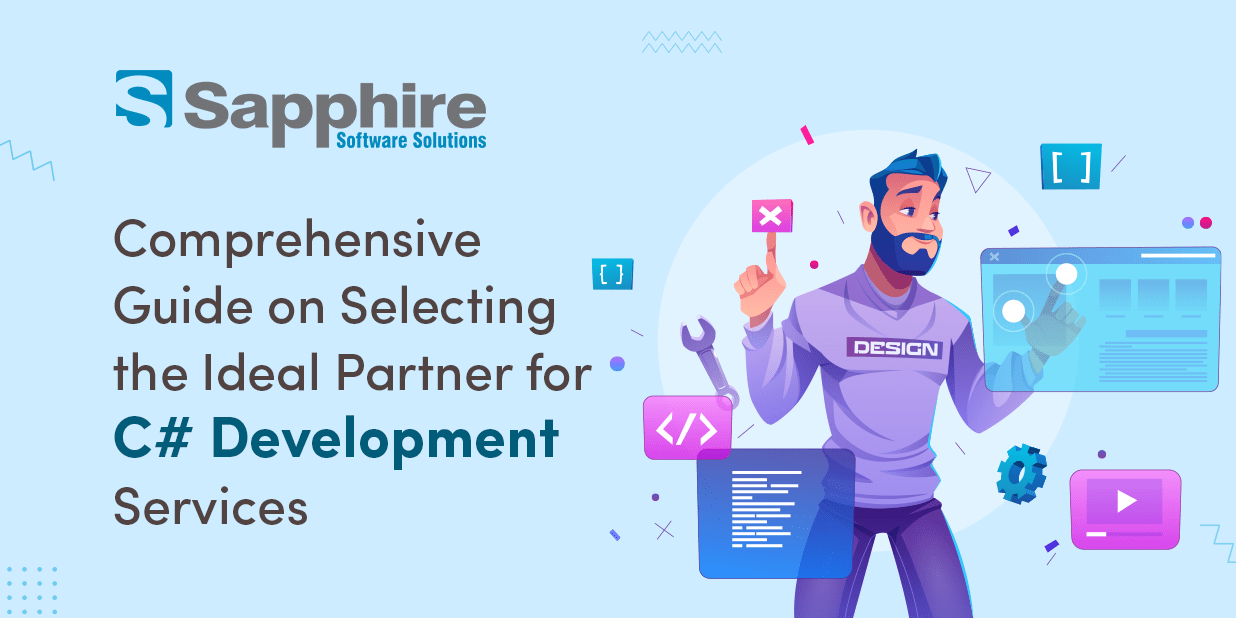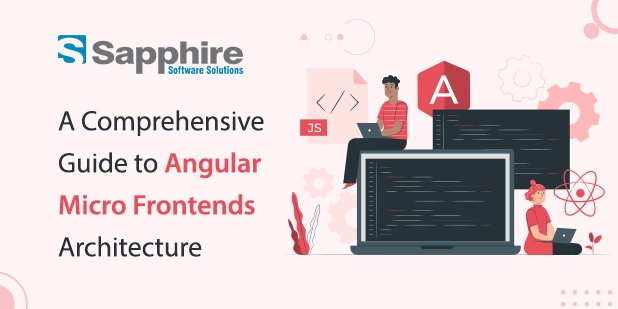1. Define Your Requirements:
Before embarking on the journey to find a C# development partner, it’s paramount to articulate your project’s scope, goals, and preferred technologies. Delineate the features and functionalities you envision, setting the groundwork for identifying a partner with the right expertise and capabilities for C sharp development services. This initial step ensures a mutual understanding, aligning your expectations with the potential partner’s abilities and establishing a solid foundation for a successful collaboration.
2. Experience and Expertise:
Selecting a C# development partner with a wealth of experience is pivotal. Scrutinize their portfolio to gauge the breadth and depth of their expertise. Look for evidence of successfully delivered projects, especially those similar to yours. Consider the partner’s proficiency in relevant technologies, frameworks, and industry domains. An experienced partner brings technical know-how, a nuanced understanding of challenges, and practical problem-solving skills, enriching the collaborative process and increasing the likelihood of project success.
3. References and Reviews:
The significance of client references and reviews must be balanced. Request references from the prospective partner and delve into independent platforms to glean insights into their reputation and client satisfaction. Testimonials offer a glimpse into the partner’s reliability, communication practices, and commitment to client success. A partner with positive reviews and satisfied clients is likely to be a trustworthy and dependable collaborator, instilling confidence in your decision.
4. Technical Proficiency:
Evaluating a C# development team’s technical skills are essential to making sure your project succeeds and lasts a long time. Examine their knowledge of the most recent C# language features and associated technologies. Evaluate their ability to solve simple and complicated problems. The success of a project and its long-term stability, scalability, and adaptability in the dynamic software development environment are guaranteed by a highly qualified team.
5. Communication and Collaboration:
Effective communication forms the bedrock of successful collaborations. Evaluate a potential partner’s communication skills, considering language proficiency, clarity, and responsiveness. Please inquire about the tools and methodologies they employ for collaboration, ensuring they align with your preferences. Transparent and open communication fosters a collaborative environment, minimizing the risk of misunderstandings and discrepancies. A partner who prioritizes effective communication is better equipped to understand your vision, address concerns promptly, and ensure a smooth development process.
6. Scalability:
As your project progresses, its requirements may evolve, necessitating a scalable development team. Evaluate a potential partner’s ability to accommodate changes in project scope or scale up resources if needed. Scalability is a crucial aspect that ensures the partner can flexibly respond to the dynamic nature of your software development initiatives. A partner with scalability at its core adapts to changing project needs and demonstrates a commitment to long-term collaboration and success.
7. Quality Assurance:
Quality assurance is paramount in the realm of software development. Inquire about a partner’s testing processes, methodologies, and commitment to delivering high-quality code. Ensuring they adhere to industry standards and best practices for code quality, testing, and debugging is crucial. A robust quality assurance process not only safeguards the reliability and performance of your software application but also instills confidence in the end product, assuring its effectiveness and functionality.
8. Project Management:
The success of a software project hinges on effective project management. Evaluate a potential partner’s project management methodologies, such as Agile or Scrum. Discuss their approach to project planning, tracking, and reporting. A well-organized and transparent project management approach ensures that your project stays on course, milestones are met, and potential issues are identified and addressed promptly. Effective project management enhances overall efficiency, fostering a collaborative and goal-oriented development process.
9. Security Measures:
Security is a non-negotiable aspect, especially when dealing with applications that handle sensitive data. Inquire about the security measures a partner has in place. Ensure they adhere to industry best practices for securing applications and data, demonstrating a commitment to the confidentiality and integrity of your project. A secure development process protects against potential vulnerabilities and establishes a foundation of trust, assuring both you and end-users of the software’s security and reliability.
10. Cost and Contractual Terms:
Transparent financial arrangements are crucial for a healthy and trusting partnership. Request a detailed breakdown of costs and ensure it aligns with your budget. Discuss contractual terms, including payment schedules, milestones, and potential additional costs. A clear understanding of the financial aspects prevents misunderstandings and establishes a solid foundation for collaboration. Transparency in financial matters indicates a trustworthy partner and sets the stage for a mutually beneficial and lasting collaboration.
11. Support and Maintenance:
Successful software partnerships need post-development support and maintenance. Find out how a partner handles problem fixes, updates, and support. A solid support and maintenance plan keeps your software safe, updated, and user-responsive. Post-development assistance shows a partner’s commitment to your project’s long-term success and relevance, boosting trust in its functioning and relevance.
12. Legal and Compliance:
Navigating legal and compliance considerations is crucial when selecting a development partner. Ensure the prospective partner complies with relevant legal and regulatory requirements. Clarify aspects related to intellectual property rights and ownership of the code. A clear and mutually agreed-upon legal framework protects both parties, mitigating risks and fostering a trustworthy and compliant partnership. Legal diligence is an indispensable step in establishing a solid foundation for collaboration, ensuring clarity and alignment on critical legal aspects.
13. Location and Time Zone:
Consideration of the location and time zone of the development team is essential for seamless collaboration. While remote collaborations are common, having a reasonable overlap in working hours can enhance real-time communication and collaboration. Factor in the time zone difference to avoid delays in decision-making and problem resolution, ensuring a smoother development process. Alignment in working hours fosters effective communication and collaboration, contributing to the overall efficiency and success of the development partnership.
14. Flexibility and Adaptability:
In the dynamic landscape of software development, adaptability is a hallmark of a successful partner. Assess a potential partner’s ability to adapt to changes in requirements or emerging technologies. Software projects often undergo iterations and changes, and a partner who can navigate these seamlessly demonstrates resilience and a commitment to delivering solutions that align with your evolving goals. Flexibility is critical to ensuring that the partnership can effectively respond to the dynamic nature of the software development lifecycle, contributing to the long-term success of your projects.
15. Cultural Fit:
Consideration of cultural factors is integral to fostering a positive working relationship. A good cultural fit enhances team dynamics and collaboration. Aligning values, work ethic, and communication styles contributes to a harmonious partnership. A culturally aligned team is more likely to understand your vision, work collaboratively toward common goals, and navigate challenges effectively. The cultural fit between your organization and the development team contributes to a positive and productive work environment, fostering a partnership grounded in shared values and mutual understanding.
Conclusion:
Selecting the ideal partner for C sharp development services involves a comprehensive evaluation process that goes beyond technical expertise. You can make an informed decision by defining your requirements, assessing your experience, considering communication dynamics, and addressing legal aspects. As a C Sharp development company, we offer a pool of vetted C# developers for your C# development projects. If you want to hire c sharp developers, contact us now!





































